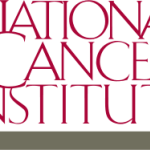- 行业: Government; Health care
- Number of terms: 6957
- Number of blossaries: 0
- Company Profile:
The National Cancer Institute (NCI) is part of the National Institutes of Health (NIH), which is one of 11 agencies that compose the Department of Health and Human Services (HHS). The NCI, established under the National Cancer Institute Act of 1937, is the Federal Government's principal agency for ...
A guanine analogue with antineoplastic activity. O(6)-benzylguanine binds the DNA repair enzyme O(6)-alkylguanine DNA alkyltransferase (AGT), transferring the benzyl moiety to the active-site cysteine and resulting in inhibition of AGT-mediated DNA repair. Co-administration of this agent potentiates the effects of other chemotherapeutic agents that damage DNA.
Industry:Pharmaceutical
A guanylhydrazone with potential antineoplastic activity. Mitoguazone competitively inhibits S-adenosyl-L-methionine decarboxylase (SAMD), an enzyme involved in the synthesis of polyamines, resulting in decreased proliferation of tumor cells, antimitochondrial effects, and p53-independent apoptosis. Polyamines, specifically spermine and spermidine, are essential for thymidine kinase production, DNA synthesis, and cell proliferation.
Industry:Pharmaceutical
A group of North American weedy herbs belonging to the genus Solidago (family Asteraceae) with potential chemopreventive activities. Goldenrod may also possess anti-inflammatory, antiseptic properties, diuretic and antifungal properties, and may relieve chemotherapy-induced side-effects.
Industry:Pharmaceutical
A glycosylated recombinant protein which is chemically identical to or similar to endogenous human interleukin-7 (IL-7) with hematopoietic and immunopotentiating activities. Naturally produced by bone marrow, thymic stromal, and spleen cells, the cytokine interleukin-7 is a hematopoietic growth factor for progenitor B cells and T cells, stimulating proliferation and differentiation of mature T-cells and natural killer (NK) cells. As with glycosylated endogenous proteins, glycosylation of recombinant proteins may fundamentally affect their biological activity, function, clearance from circulation, and antigenicity; glycosylation of recombinant proteins that are chemically identical to similar to endogenous proteins may render protein structures and biological activities that are more similar to those of glycosylated endogenous proteins.
Industry:Pharmaceutical
A glycosylated form of a recombinant agent that is chemically identical to or similar to endogenous human granulocyte colony-stimulating factor (G-CSF) and is produced using transgenic biotechnology. Transgenic hens carrying recombinant human G-CSF cDNA express the naturally glycosylated recombinant human protein in egg albumen from which glycosylated recombinant human G-CSF AVI-014 is isolated. Produced endogenously by monocytes, fibroblasts, and endothelial cells, G-CSF binds to and activates specific cell surface receptors, stimulating neutrophil progenitor proliferation and differentiation and selected neutrophil functions.
Industry:Pharmaceutical
A glycosidic antineoplastic antibiotic isolated from the bacterium Streptomyces griseus. Chromomycin A3 reversibly binds to guanine-cytosine (G-C) base pairs in the minor groove of DNA, thereby inhibiting RNA synthesis. This agent is used as a fluorescent chromosome dye.
Industry:Pharmaceutical
A glycoengineered, fully humanized IgG1 monoclonal antibody with potential antineoplastic activity. Afutuzumab, a third generation type II anti-CD20 antibody, selectivity binds to the extracellular domain of the human CD20 antigen on malignant human B cells. The Fc region carbohydrates of the antibody, enriched in bisected non-fucosylated glycosylation variants, contribute to its higher binding affinity for human FcgammaRIII receptors compared to non-glycoengineered antibodies, resulting in enhanced antibody-dependent cellular cytotoxicity (ADCC) and caspase-independent apoptosis. In addition, modification of elbow hinge sequences within the antibody variable framework regions may account for the strong apoptosis-inducing activity of R7159 upon binding to CD20 on target cells.
Industry:Pharmaceutical
A glycoengineered, fully humanized IgG1 monoclonal antibody directed against the extracellular domain of the human CD70 molecule with potential antineoplastic activity. Anti-CD70 fully human monoclonal antibody MDX-1411 selectivity binds to the extracellular domain of CD70, which may induce an antibody-dependent cellular cytotoxicity (ADCC) response against CD70-expressing tumor cells. CD70, the ligand for the costimulatory receptor CD27 and a member of the tumor necrosis factor (TNF) family, is found on renal cell carcinoma (RCC) cells among other cancer cell types.
Industry:Pharmaceutical
A glycoengineered monoclonal antibody directed against the epidermal growth factor receptor (EGFR) with potential antineoplastic activity. Anti-EGFR monoclonal antibody RO5083945 binds to the extracellular domain of EGFR, preventing the activation and subsequent dimerization of the receptor; the decrease in receptor activation and dimerization may result in an inhibition of downstream ERK and JNK signaling pathways and so inhibition of EGFR-dependent tumor cell proliferation and metastasis. EGFR, a member of the epidermal growth factor family of extracellular protein ligands, may be overexpressed on the cell surfaces of various solid tumor cell types.
Industry:Pharmaceutical
A glucose-linked chloroethylnitrosourea with potential antineoplastic activity. Chlorozotocin alkylates DNA and proteins, induces the formation of interstrand DNA and DNA-protein crosslinks, and causes DNA strand breakage, thereby damaging DNA and resulting in cell death. This agent has been shown to exhibit antitumor and immunomodulatory effects in cell lines and animal models. Chlorozotocin is a mutagen and is less myelotoxic than other nitrosoureas.
Industry:Pharmaceutical
